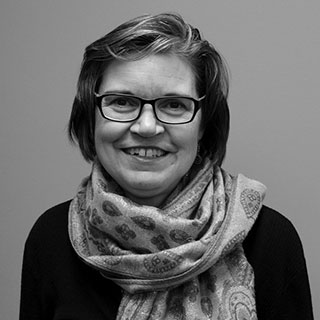
Serving Leaders: Replacing Ourselves

How do we serve leaders? By thinking about how to replace them!
Okay, maybe some of you will think this is a bad idea.
Or you might think it’s even cruel or disloyal. I probably would have felt that way when I was younger.
But now that I am getting older and wondering how much longer I will be able to do the things I am doing, I am glad to have those around me who are thinking about how to replace me … or at least how to pass on my responsibilities.
For me, it’s partly about leaving a legacy. It’s about hoping and praying that some of the work I am doing will continue into the future. I believe if God is at work in my ministry, then my loving Father may want to continue that work. He may even want to use someone else.
Fortunately, my colleagues also saw this need for continuity and last year they recruited a younger person to work alongside me and learn about the work I am doing in building mental health resources for the Canadian mission community. I have been meeting weekly for about 8 months with this young person. This is the first time I have tried to train someone else. I am not a mentor or a trainer.
At times you could say that we are bumbling along and learning together. However, there is one thing for sure – it brings great satisfaction and joy to be able to share ideas, goals, dreams, and plans with someone who is eager and willing to learn. What a gift to work alongside another person who voluntarily chooses to learn about the work you are doing and participate in it.
As I reflected about this experience, I was wondering how is this different from mentoring?

Mentoring
To better understand the ingredients of mentoring I turned to one of our friends in the mission community, Tim Jacobson, Associate Director with MentorLink Canada.
Tim wrote:
“Often, we hear it said, “I am standing on the shoulders of those who have gone before me.” Mentoring is the act of offering your shoulders for someone else to stand on. But a distinctive of mentoring is that it is a living, dynamic, relational process. We can learn a great deal from dead mentors through their writings or even from living authors or from teachers or preachers. But the model of the Trinity and the examples of Jesus and the apostles and other biblical figures demonstrate the power of relational support in our personal formation. Mentoring focuses on the “teaching them to obey everything that I have commanded you” part of the Great Commission. The role of mentoring is to be a tool in the process of making disciples that capitalizes on the relational dimensions of teaching, encouraging, advising, guiding, correcting, resourcing, and accompanying another person on their discipleship journey in the process of being transformed into the image of Jesus Christ.”
For more information about becoming a mentor and helping prepare the next generation for God’s call on their lives, please contact Mentor Link Canada.
https://mentorlink.org/canada/
Next Steps
- Pray for someone that you can mentor.
- Take the Mentor Link training to learn about mentoring.
- Pray for someone to work alongside you, who is younger than you.
- Set goals for succession planning in your agency, church, organization.
 Anna Marie is a Missionary & Clinical Counsellor with the MORE Network. She has been married to Doug for 40+ years, has 2 children and several grandchildren and lives in Vancouver, BC. She has provided counselling and Member Care in Asia for 12 years in several locations. Her passion is to help missionaries and their families through grief, pain and loss while in various stages of transition. She understands just how difficult it can be transitioning in and out of cross-cultural ministry. She holds a nursing degree (BScN) and counselling degrees (Master of Arts in Counseling) and is recognized as a Registered Clinical Counsellor and Canadian Certified Counsellor.
Anna Marie is a Missionary & Clinical Counsellor with the MORE Network. She has been married to Doug for 40+ years, has 2 children and several grandchildren and lives in Vancouver, BC. She has provided counselling and Member Care in Asia for 12 years in several locations. Her passion is to help missionaries and their families through grief, pain and loss while in various stages of transition. She understands just how difficult it can be transitioning in and out of cross-cultural ministry. She holds a nursing degree (BScN) and counselling degrees (Master of Arts in Counseling) and is recognized as a Registered Clinical Counsellor and Canadian Certified Counsellor.